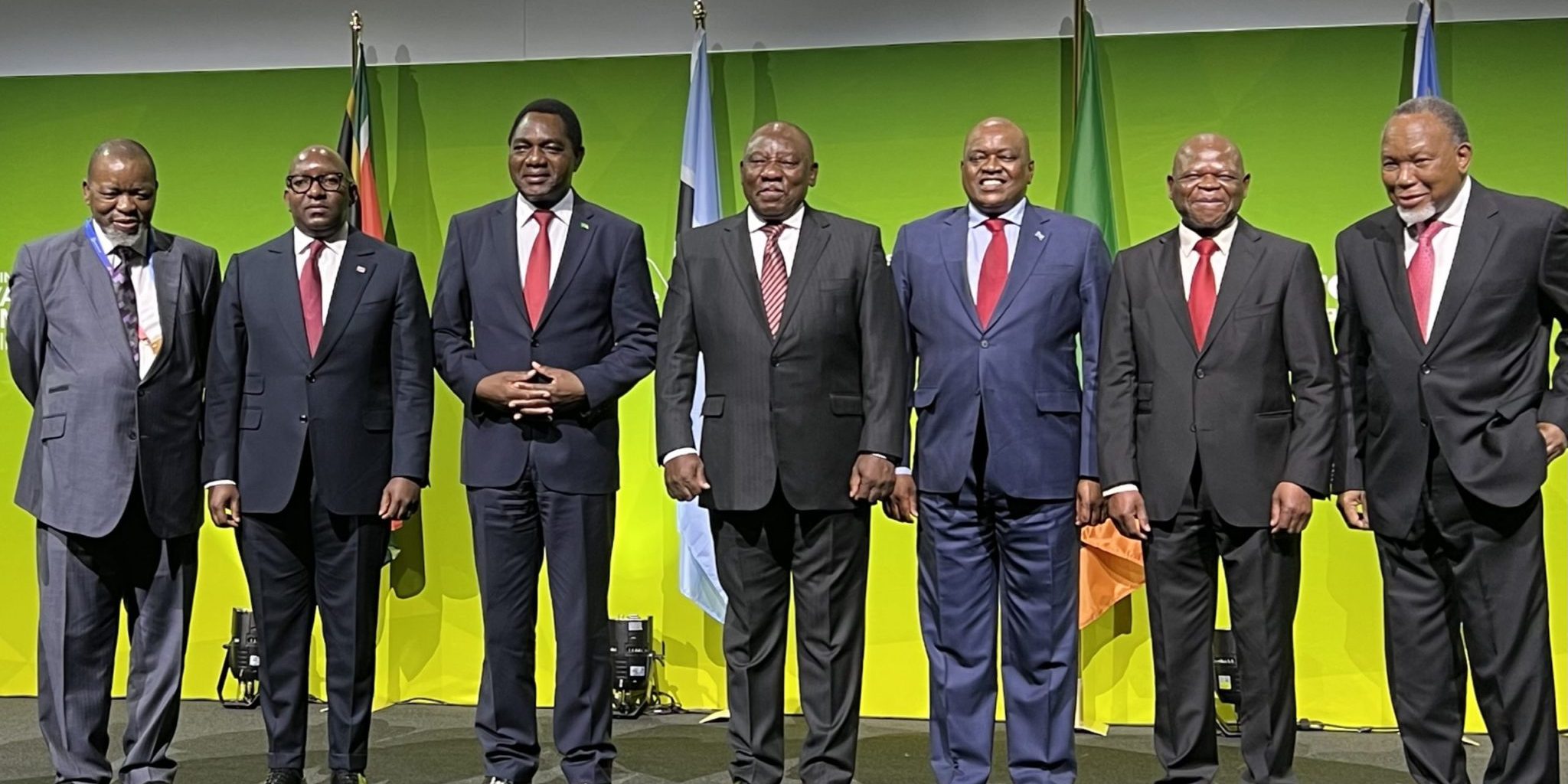The Invest in Africa Mining Indaba heard that African leaders are waking up to the fact that the continent stands at the precipice of a generational opportunity to reinvent itself and participate in meaningful economic upliftment as the global energy transition accelerates.
But to get there, several African leaders spoke of ongoing policy reforms to attract new investment and create new regional value chains to service the emerging green economy.
South Africa’s president, Cyril Ramaphosa, told the Indaba audience that policy reforms were at the core of what was required to lob mining back to being the critical driver of economic development that made Africa’s most industrialized economy in the first place.
“Despite the great prospects for South African mining, we face significant challenges. It is a great concern that South Africa has fallen into the bottom 10 of the [Canada-based] Fraser Institute’s investment attractiveness index ratings. We’re currently standing at 75th of 84,” he lamented.
The ranking underlines the fundamental reality that South Africa needs to move with a greater purpose to remove the various impediments, hurdles and constraints to the growth and development of the industry.
“We understand very clearly the need to fix the regulatory and administrative problems that have crept into the system. We need to clear the backlog of mining and prospecting rights and mineral rights transfer applications and implement a modern and much more efficient cadastral system and implement an effective exploration strategy,” said Ramaphosa.
“We understand very clearly the need to significantly improve the functioning of our railways, which have fallen into disrepair, our ports which are not performing at optimal levels, and the vital importance of ensuring a secure and reliable supply of affordable electricity. These tasks are at the forefront of our economic reconstruction,” said Ramaphosa.
He noted the South African government had made significant headway in driving a policy reform program.
An important area of progress is regulatory reform to facilitate new electricity generation by the mining and other sectors to meet the deficit that the country has been dealing with for the past decade.
“Regulations have been amended to allow companies to invest in new generation capacity, up to about 100 megawatts, without needing a licence. We are working further to cut red tape for the registration of projects to accelerate the environmental approvals and strengthen the capacity of our energy generation company Eskom and municipalities to link such projects to the grid,” said the president.
According to the Minerals Council, in South Africa, around 4,000 megawatts or ZAR65 billion of such electricity generation capacity investment was in the pipeline. “The unbundling of Eskom into separate entities for transmission for distribution and generation is on track and is set to be completed later this year,” he said.
Further, South Africa is working with the Department of Water and Sanitation to implement a turnaround plan to issue water use licences that the mining industry relies upon.
“We’re working towards a target of 80% of all applications being resolved within 90 days, and this will have moved from a process that took three years for a mining use licence or water use licence to be approved,” said Ramaphosa.
On Transnet, the national rail operator, Ramaphosa noted the recent publication of the white paper on national rail policy, outlining plans to revitalize rail infrastructure and enable third-party access to the freight rail network.
“We have heard the calls from industry for private operators to be allowed to operate the country’s dedicated coal, iron ore and manganese lines,” said Ramaphosa.
The South African president is keen to draw on the experiences of neighbouring countries to work together with the industry and other stakeholders to strengthen the capacity of security services and law enforcement agencies to tackle illegal mining, widespread cable theft and general damage to infrastructure.
“We’re setting up focus teams in the security establishment to deal with these challenges, and several successes are already being recorded,” he said.






